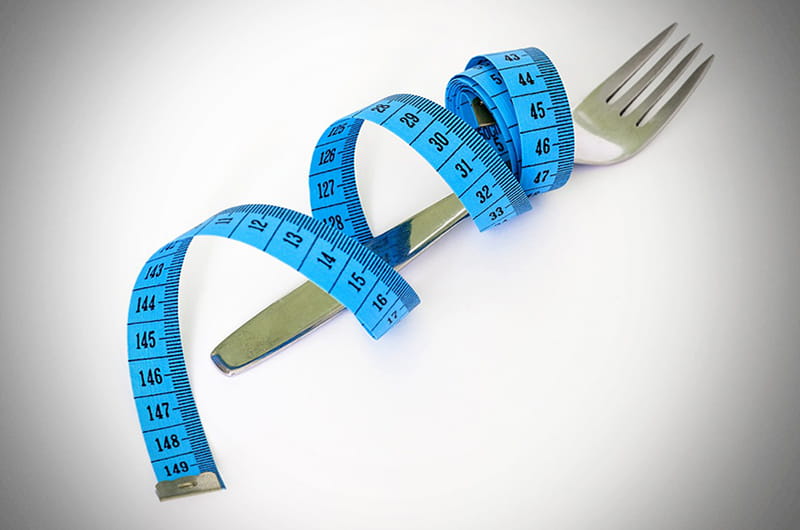The Science of Eating Disorders

- Bolstered by Research Consortium with Drexel, Jefferson’s Sidney Kimmel Cancer Center Earns National Cancer Institute Comprehensive Cancer Center Designation
- Through Connections and Community, Drexel Course Helps Launch Computer Lab in Tanzania
- Drexel’s Pearlstein Gallery Offers Spring Exhibitions Centered on the Healing Properties of Art and Creative Works
- Drexel's Self-Heating Concrete Is One Step Closer to Clearing Sidewalks Without Shoveling or Salting

This week is National Eating Disorders Awareness Week, when a spotlight is placed on the many forms eating disorders can take and the people they harm. It is important to look at how these disorders are caused, dangers associated with them and their treatments. Eating disorders have the highest mortality rate of any mental disorder, so early detection is critical.
“Eating disorders are a lot more complex than people realize,” said Adrienne Juarascio, PhD, assistant research professor in the College of Arts and Sciences’ Department of Psychology. Juarascio is the primary supervisor of Drexel’s Delta Clinic, which specializes in outpatient treatment for individuals who suffer from anorexia nervosa, bulimia nervosa and binge eating disorder.
“The conventional idea is that these disorders just affect young women, but that isn’t the case,” said Juarascio.
Binge-eating disorder, Juarascio said most often presents in middle age, and equally affects men and women . Anorexia, characterized by an unwillingness to keep one’s BMI within a healthy range, often emerges during early adolescence.
But what causes these disorders? For a long time, a lot of emphasis was put on body-image dissatisfaction, of a need to be skinny to better emulate movie stars and models. That explanation, however, is no longer given much credence, as it appears to be more anecdotal than scientific.
“Almost all women feel some degree of body-image dissatisfaction; but not all women have eating disorders,” Juarascio said. “One factor that our team and others are examining is the role of emotion dysregulation in the development of eating pathology. Both over-eating and under-eating can powerfully effect an individual’s emotional experiences and using food or intense dieting as a coping strategy can maintain an eating disorder. In my experience, patients are more often hyperfocusing on their body image as a way to avoid other distressing life experiences like anxiety about their job or school work or worries about a relationship. It’s often easier to control your eating behaviors than it is to control many other important domains in your life.”
Using food to alter one’s emotions is not usual, as anyone who’s treated oneself to chocolate or a beer after a rough day will tell you. In fact, our brains are wired for it. The human body needs large amounts of nutrition in the form of protein, carbohydrates and fat. To encourage us to seek out these “macronutrients,” our brains give us small emotional rewards when we eat them. But the emotional rewards for fat carry an extra element that can become problematic.
“Fat is part of a positive feedback loop,” said Jessica Barson, PhD, assistant professor in the College of Medicine’s Department of Neurobiology and Anatomy. “If you eat similar-sized portions of a fat-heavy meal and protein-heavy meal, after the fat-heavy meal you would want to eat more and more quickly. You won’t be satisfied. This is a good evolutionary trait in the wild, where fat is difficult to come by. But in our culture, fat is abundant.”
Barson agrees that food’s capacity to alter our emotional state could be a major element of how eating disorders begin. “The limbic system of the brain is involved with the emotional spectrum of feeding and eating. I suspect what’s going on with binge-eating is that that the limbic systems says ‘wow, this is really good’ and rewards you emotionally.”
But while the biological origins of eating disorders may come from the denial or indulgence of this singular evolutionary adaption, that does not mean there is one guaranteed cure for the millions who suffer from them across the country.
“There’s not a single path to an eating disorder,” Barson said. “There are multiple way to get to that point, so we need multiple ways to treat them. The treatment needs to be individual.”
That treatment, however, can only start once an individual is aware they have a problem.
“I wish we would do things like National Eating Disorders Awareness Week more often, so a lot more people can get connected to good empirically-based treatment approaches,” Juarascio said. “So many people don't realize that their concerns about their eating or their body image are part of an eating disorder. They think what they’re going through is normal. But there are treatments that can help them feel better.”
To help with this, the National Eating Disorders Association has a free, confidential online eating disorders screening, which quickly and easily determines if you require professional help. Drexel’s Delta Clinic and Psychological Services Center provide eating disorder treatment services on a sliding scale, allowing as many people as possible to get the help they need. You can contact the Delta Clinic at 215.553.7128.
Being aware of eating disorders also requires an awareness of eating in general. It’s important to understand why we crave certain things, and why we might alter our lives in order to deny or over-indulge in those cravings.
“What we eat affects our brain,” said Barson. “That can change not just our eating patterns, but other parts of our behavior as well.”
In This Article
Drexel News is produced by
University Marketing and Communications.
